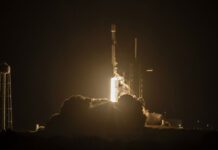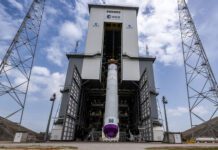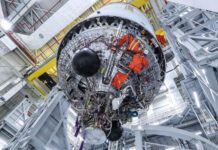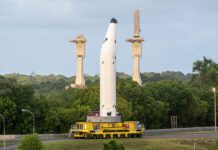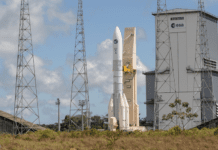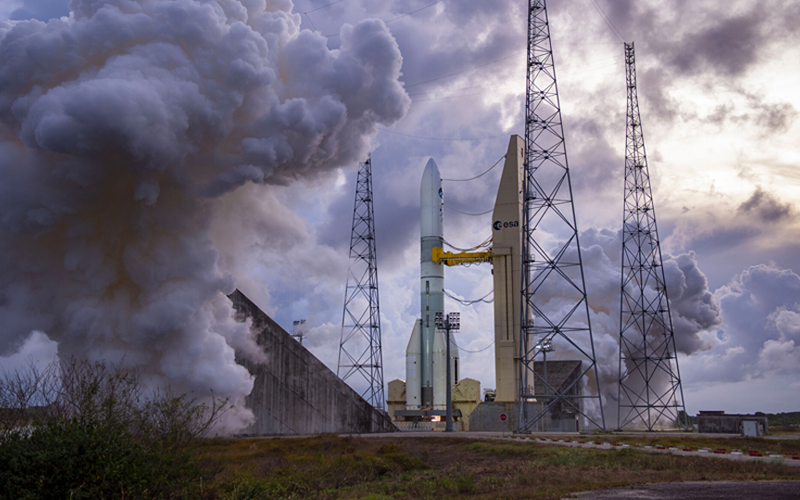
The European Space Agency has successfully completed a full-duration hot fire test of an Ariane 6 core stage. The final major milestone left on the road to the vehicle’s maiden flight is a hot fire test of the rocket’s second stage, which is expected to take place next month.
Combined testing of Ariane 6 and its various elements, components, and systems began in September 2021. The first fully stacked Ariane 6 launch vehicle appeared from its integration bay at the Guiana Space Center’s ELA4 launch complex in October 2022. Since then, much of the testing on the launch pad has been leading up to the moment when the rocket’s core stage would be ignited for a full-duration hot fire test.
This long-duration hot fire test had initially been scheduled for 3 October. However, following a short four-second hot fire test on 5 September, teams discovered an anomaly affecting the hydraulic group of the rocket’s attitude control system. Without waiting for the results of a technical investigation, prime contractor ArianeGroup and the subcontractor SABCA replaced the component to allow the long-duration test to occur. It is, however, likely that ESA will require the technical investigation to actually be concluded before declaring the vehicle fit for its maiden flight.
Ignition of the rocket’s Vulcain 2.1 engine occurred at approximately 20:44 UTC on 23 November. In total, the engine was expected to fire for 470 seconds, which represents the duration it will be required to operate during an actual mission. During this time, the Vulcain 2.1 engine would burn through 125 tonnes of liquid oxygen and 25 tonnes of liquid hydrogen. However, it appears that the test fell short of this target.
According to CNES Guiana Space Center range operations director Thierry Vallee, the test lasted for 426 seconds. Despite ending 44 seconds early, CNES, ESA and ArianeGroup have all stated that the test appeared to have been completed successfully.
“This milestone rehearsal comes after years of designing, planning, preparing, building and hard work from some of the finest space engineers in Europe,” said ESA Director General Josef Aschbacher. “We are back on track towards resecuring Europe’s autonomous access to space.
The actual determination of the outcome of the test will, however, be confirmed in around two weeks after teams have analysed data from over 800 individual sensors equipped to the Ariane 6 test article.

